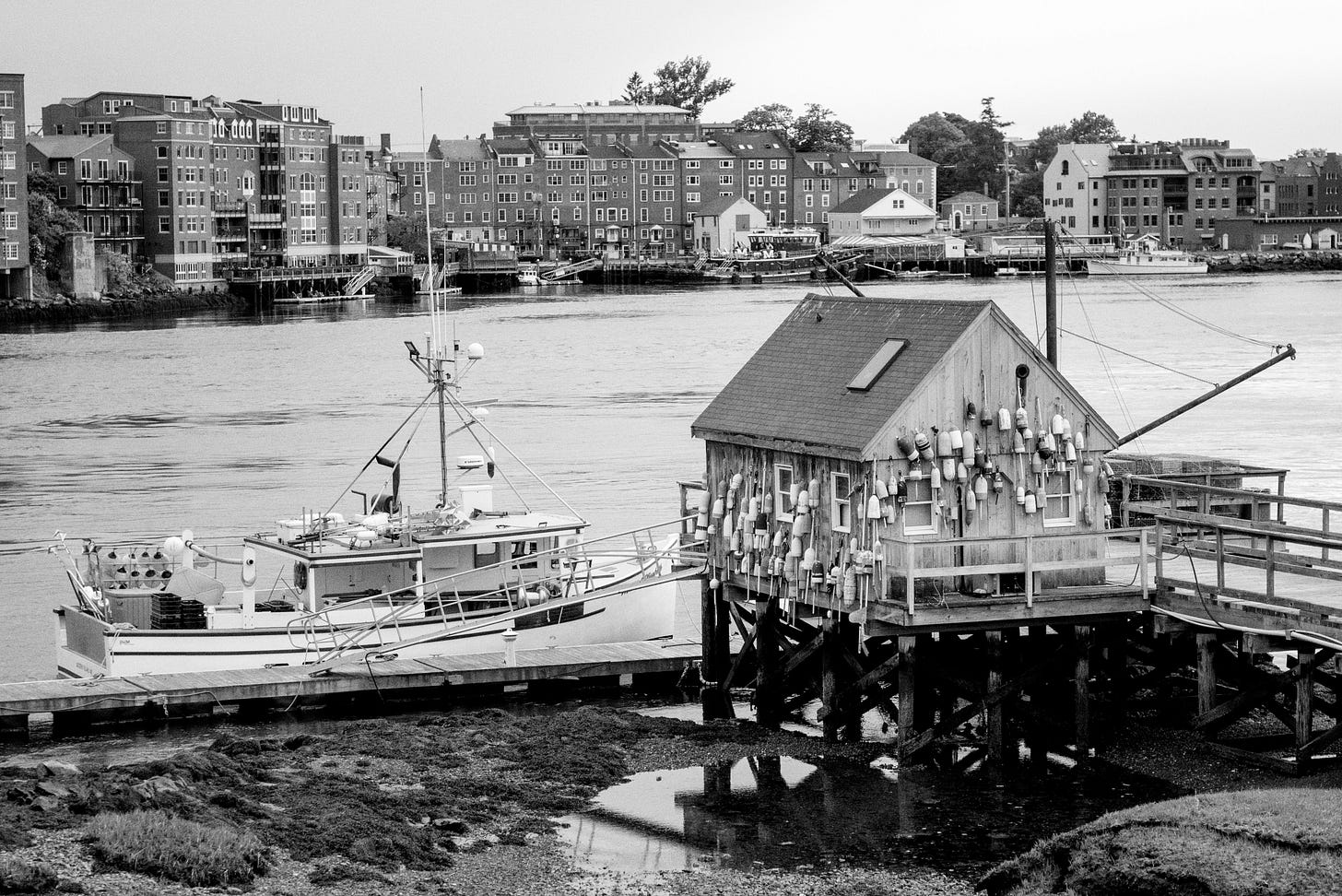The fisherman grabs his Thermos and lunchbox, heads down the hill where sleepy- eyed men emerge from their trucks and mumble greetings to one another and slip, sleek as seals, into powerboats whose motors, once pulled and chugged into life, will take them to the fishing boats bobbing offshore. Just before heading for open water, the fisherman looks once more up the hill to the kitchen light, something toward which to align his mind. He knows his wife, by now, has shaken awake his boys who stand with her, murmuring a decade of the rosary while they watch the departures. He looks for the familiar green and blue buoys, a design that for decades has marked his family's traps—his father's, and, before that, his father's father's. In time he will present these to his sons, should they want that kind of unkind life. The painters who gather here, late summer into fall, and set up their easels along sidewalks, to capture the boats glistening in the sun, the romance of the sea, have all but left town. Down at the school, the senior class plots its homecoming float, floated around the high school track before the football game, paid for by money the locals can little afford, but give unbegrudgingly, let the kids have a bit of fun, cut back a little on this month's groceries. Soon enough this group of kids will be broken up. Some will head to trade schools, some to university. Some to the docks. Some will join their fathers on the boats, the diesel fuel, the salt water, the air cutting across the ruddy face, the bobbing up and down in choppy waters, the freedom of this life sinks its hooks into a man and never lets him go despite the man taken by the sea: men lost in storms, men hauling traps alone, the betrayal of their own lines coiling round their legs and dragging them under. Too many sons have recovered boats, bodies too, and taken them home to their mothers who sit in the kitchen and wait. For eight hours, maybe ten, the fisherman hauls up his traps, checks the sex and the size of the lobsters. He rebaits each trap with salted herring and slips it back to the sea before heading home at sunset.
Kelly Garriott Waite writes from Oberlin, Ohio. Her work has appeared in Main, an Anthology, the Citron Review, What Rough Beast, Barren Magazine, BioStories, the Hopper, the Fourth River, BrainChild, and elsewhere.


